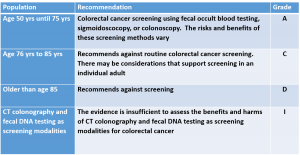Memories fade. Like looking through a fogged mirror…or scope
How quickly fades from our minds the delightful memories of our adventures in dreamy Colonoscopyland. In a recent news release from the American College of Surgeons, it was determined that the important details about the appropriate screening schedules for colo-rectal cancer for a patient fades with time.
The study, authored by Dr. Amer Alame, a colorectal surgeon at St. John Hospital and Medical Center in Detroit, randomly selected 50 post colonoscopy patients for each of 4 time periods since their procedure – 2 months, one, two, and four years. At two months post procedure, nearly everybody, 94%, could recall the date within one month of their colonoscopy. That recall fell to 42%, 30% and 28% by one, two, and four years, respectively.
Perhaps more alarming, the percentage who knew about polyps on their endoscopy was 65.2%, 31.6%, 35.7% and 37.5% in the four groups. Even worse – those who could accurately recall the number of polyps found on their exam was a paltry 39.1%, 10.5%, 7.1% and 6.25%. Well, at least it beats my personal recall of my children’s birthdays and ages.
So this brings us to consider three things:
- In the office, check for original documentation as you might not fully trust the recall for this important screening test.
- Consider the possibility that translating a patient’s recall into the electronic record may transform erroneous information to factoid.
- Given the poor recall of this important procedure, other important health history items may also be inaccurate.
This Blog is just an additional reminder about the importance of colo-rectal cancer screening for our patients. It’s an unfortunate fact that according to 2007-2011 data, four of the highest county rates of age adjusted invasive colon cancer in California occurred in Partnership counties.
Screening saves lives.
The USPSTF summary of recommendations for colorectal cancer screening are as follows:

